Dr Omar Janneh (PhD)
It will be difficult to address the issue of (alleged or perceived) conflict of interest if the conflicted individual(s) claim to be or other individuals claim on their behalf that the conflicted is/are morally upright, fulfil the essential and desirable criteria of the post and that all will be well. There is a generally accepted view that the appointment of a conflicted individual to a public office (could) influence the individual’s decision-making process even if s/he fulfils all of the essential and desirable criteria of the post and is morally and ethically upright. Citizens should at the very least trust the people in public office, but I do not think it is possible to trust those in public office if their professional service/judgement can be affected by personal and or private interests because of being conflicted. There is also the issue of perception of impartiality and fairness. Trust in the TRRC by the Gambian people would, out of necessity, need to build on the foundation of a TRRC that, at the very least, appears to be fair. Anything short of this would be a TRRC set up for failure from the onset.How is it that most of us do not see this, or is it the Gambian way to carry on regardless – that the proof of the pudding is in the eating? If that is the Gambian way, itwill not and does not wash at all, not under the law. International standards require limited Executive involvement in Commissions. As many may know, the TRRC Act, 2017 is problematic with extensive Executive interference/involvement (TRRC Act, 2017). Therefore, be it the (Surahata S.) Janneh Commission, Faraba Commission, or the TRRC, the themes of fairness, honesty, independence, impartially, effectiveness, consistency, confidence, capability, transparency, and credibility must be seen to be followed, and maintained (click hereif you want to learn more).
It’s not good enough to plough ahead regardless by giving some feeble excuses that we cannot address the issues of (the rampant) conflicts of interests because we are all conflicted in The Gambia by virtue of intermarriages, etc. If indeed, this is the position of majority of Gambians, does it not therefore mean that we must have the conversation about the type of Commission we want, the constitution of that Commission as well as the need for greater involvement of experts in that Commission? Worryingly, the TRRC Act, 2017 does not appear to make allowances for that.
Once impartiality is undermined, it becomes a (near) total waste of public funds to plough ahead. The inability of the Commission to hold responsible the absent perpetrators of crimes. You see, one cannot reconcile with the absent/missing/dead, etc.; the incapacity of the Commission to question the displaced, etc., and the failure of government to implement the Commissioners’ recommendations are some the reasons why many Commission reports are collecting dust on shelves- Yes, they are toothless bulldogs. For a country with so much else to address and a government already in bed with individuals who may be perceived or alleged as culpable of past rights abuses, could a different way of looking at the past rights abuses deliver a more desirable outcome, more cheaply – I don’t only mean financially? I wonder if some of the victims or victims’ families find it desirous that this government is undisturbed by being close to some individuals who are part of the previous regime, the rights abuses of which the TRRC is set up to investigate. Has anyone cared enough to find out? Could that and the other observations made here and previously (click hereand here) make this Commission an equally futile exercise?
The point must be emphasised again that international standards require limited Executive involvement in processes such as Commissions. The Gambian situation is bizarrely unique because we do not only have extensive Executive involvement (TRRC Act, 2017), but to a large extent, the involvement of conflicted executivein the recruitment and selection of staff to the Commission. If we want to project a positive image of The Gambia and avoid a vortex of national shame, we have to be prepared to subscribe to internationally accepted standards. However, if we are interested in doing things the Gambian style, then let us pay for things ourselves. But what can we afford to pay for ourselves? The answer is probably not very much. The truth – in general, is we like to beg; travel abroad on business class and claim unjustifiable per diems, often bringing back nothing of value to The Gambia. We take more out in per diems than we generally put back in. When we go on such trips to beg, our polite hosts would often give us big pledges, but often with conditions, to which we turn a deaf ear. We come home to make fat promises (like hippos in tights) on the back of those pledges – this is gullibility at its best. Nauseatingly, even those individuals who are seemingly enlightened fall for these fat promises – because they propagate them like wild fire.Perhaps the gullibility gene (WTF1) truly exists.
On the recent appointment to the TRRC. The recent announcement to the post of Director of Research and Investigations Unit of the TRRChave much to be desired. It appears that there is a failure in processes and procedures and seems therefore unprofessional to appoint someone (click here)as head of a Team to investigate past rights abuses, with seemingly much less due diligence than one would have expected. What guiding and supportive roles is the UN playing in the recruitment and selection of staff to the Commission as was the case in Liberia, Kenya, Sierra Leone and elsewhere? The Gambia is small and lacks capacity, so we need good strong people of all faiths, support from the UN, and regional partners when it comes to appointments to the Commission. Another important question that must be asked is whether the vacancies are advertised widely, so that as many people as possible can see and apply for the posts?
It appears that a new culture that should ensure that effective processes and procedures are followed to identify and avoid conflict of interest (in the new Gambia) have seemingly been ignored in regards to the recent appointment(s). Given the apparent disregard by the TRRC Secretariat and the Justice Ministry to give the issue of conflict of interest the attention it deserves, it may be quite difficult to address the concerns of perpetrators/victims, the UNDP/international donors, regional partners, etc. who may want to see justice served following due process. As a consequence, donors could be reluctant to fulfil pledges. Of course, the option to use funds from corrupt officials from the previous regime is a plausible onewhich was used by some Commissions (click here), but that path may be littered with obstacles – in regards to process, cost, legality and ethics. In my view, it takes a leader with an intuitive mind to see blind spots (e.g., conflict of interest) and take corrective measures to address them before they become a serious hindrance to the work, under their responsibility. Given the requirementsfor administrative and management skills that come with the duties and responsibilities of the post of Executive Secretary, I think a simple google search of the applicant(s) could have giventhe interviewers some background information about applicants.Could it be that the panel members need more guided support than is provided for them? A strong leadership team that includes, e.g., representatives from the UN, regional partners, respected elders of various faiths, etc. may ensure the partiality necessary in the team to help recruit suitably qualified individuals to such a difficult task – we are too small a nation, without capacity, to handle this complex process on our own; this is a reality we must accept. Of course there are cases when qualified candidates may be considered for employment even if conflict of interest may be an issue (click here), but these are very rare cases; and if done, effective procedures are taken to resolve them, but these can be very difficult to address in a commission of this complexity and potential for toxicity.
It is not too late to work towards preventing conflict of interest from making the TRRC an impartial process. Perhaps there is still time for the Commission to recruit other staff who can neutralise the views of some of the seemingly conflicted staff so far employed (click hereand look at pages 5-6). Lessons are not only learnt in classrooms, but can be learned from our own mistakes (institutional shortcomings) and from the mistakes of others before us (click hereand here– I think this is a must read for anyone interested in truth Commissions).
I think it is worth making the following observations: I would like to caution anyone involved in Commissions to act responsibly. I have heard far too many promises from people who should know better. If we cannot even afford to invest properly in education, health and some basic infrastructure projects – using even a bit of our funds, how can we fulfil the promises implied in the TRRC Act, 2017? The expectations of the victims may be so complex that even donors and well-functioning governments cannot fulfil the promises implied in the TRRC Act and mentioned by some Commission staff. How does he TRRC intend to hear from displaced victims and perpetrators as well as from the Diaspora? This is a very complex and quite costly process. We must be aware, lack of funding is a contributing factor to the failure of some Truth Commissions (click hereand refer to page 32). Pledges by donors are just pledges. Indeed most, if all, pledges are only fulfilled if donors are convinced that certain conditions are or can be met and this piece attempts to deal with some these issues.
In regards to the recording of information and conducting investigations, we must recognise that some individuals are untrainable because certain basic academic skills and or prior experience must be in place to enable most, if not all, training to be successful. I think it is fanciful to think that individuals can be trained to do a task and once released, they can go onto serve with distinction. The TRRC is a time-limited investigation which is complex. Inappropriate recording of narratives, contamination of evidence and many other issues must be critically looked into. Because of real funding constraints, the TRRC needs people who need minimal briefing/training to do the work.
Finally, it appears to me that for the purpose of political expediency, we are making the mistake of doing the right things at the wrong time. We gain nothing by doing things for the sake of political expediency. To the contrary, given the security concerns in the country, doing the right thing at the wrong time could lead to failure, national shame, and potential for social instability which does nothing to facilitate healing, reconciliation and peacebuilding.
Finally, I suppose if others can do it reasonably well (click here, hereand here/here/herefor more information), we can too – if we take the trouble to not only hear what some are saying, but listen to what they are saying.

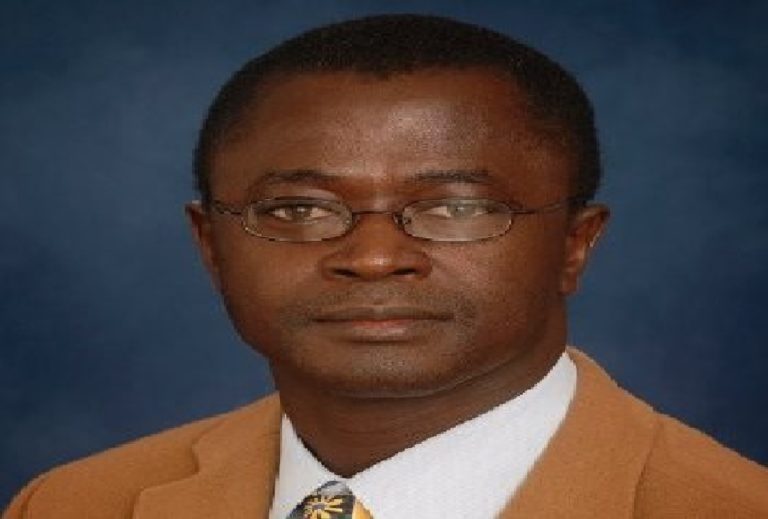
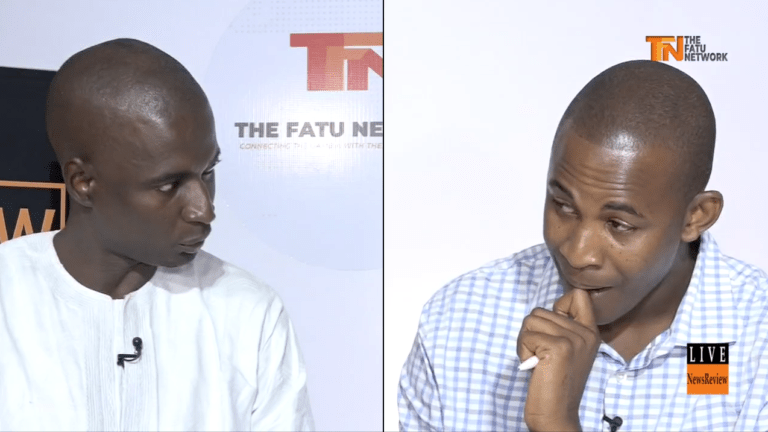

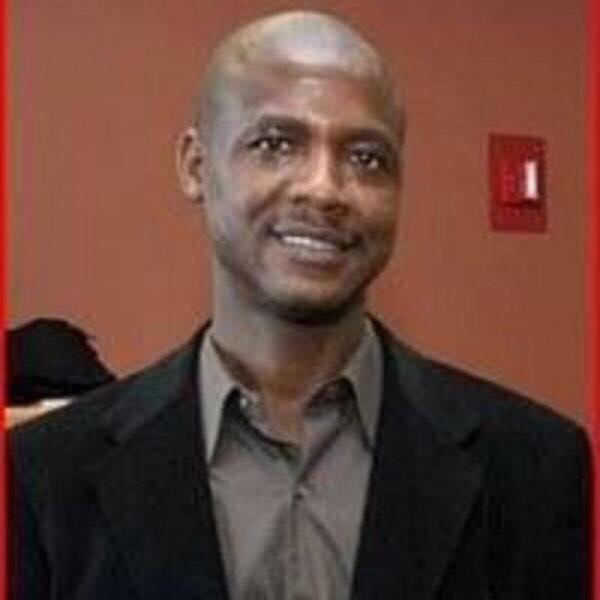




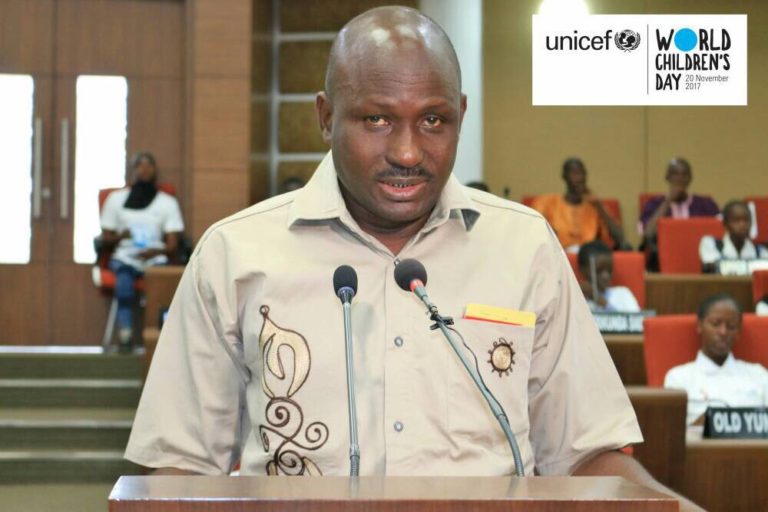



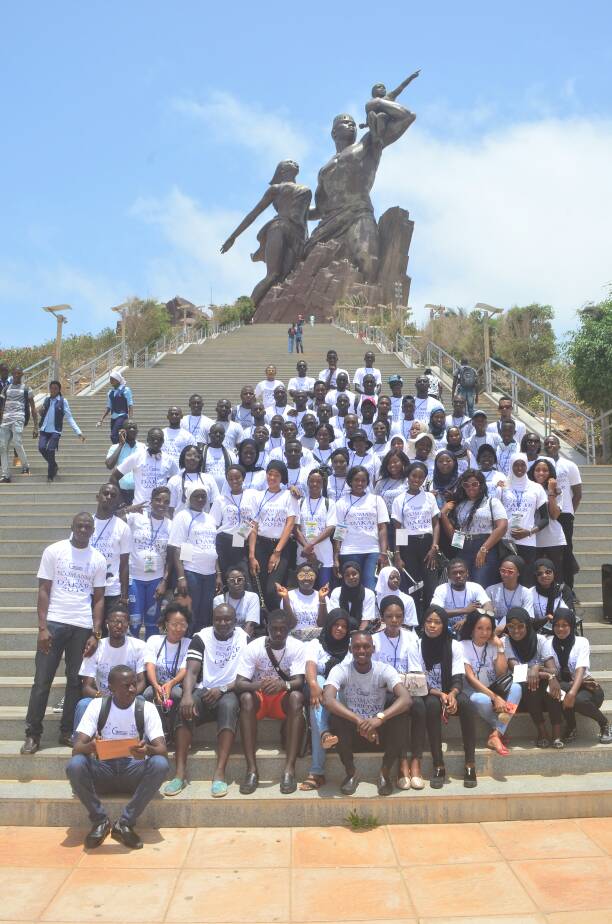
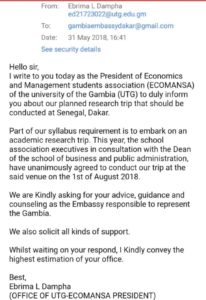
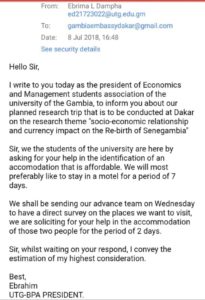

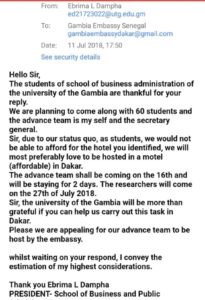
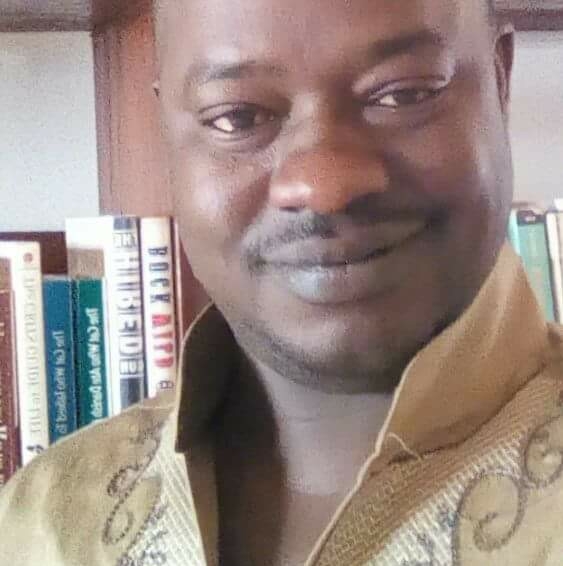


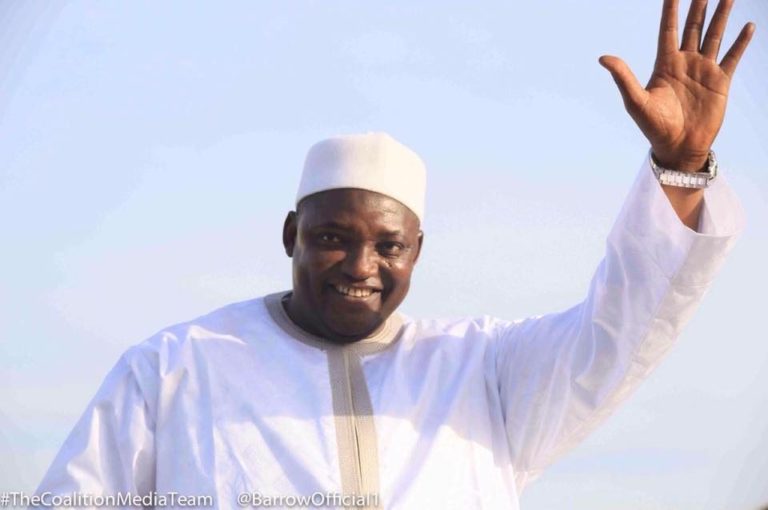
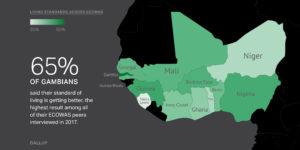
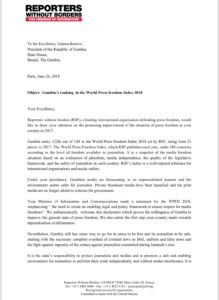
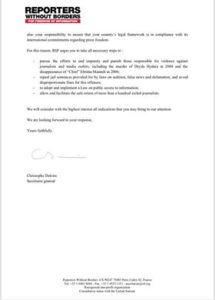

The Appointment of Alagie Barrow in the TRRC is Legal and Legitimate!
The Appointment of Alagie Barrow in the TRRC is Legal and Legitimate!
The fact that ECOMIG forces entered the Gambia on 19 January 2017 and still maintain bases in our country is an indication that Gambian votes on 1 December 2016 did not remove Yaya Jammeh. What removed Yaya Jammeh was ECOWAS and its intervention forces because Yaya Jammeh had already rejected that vote. Without international diplomatic and military intervention Yaya Jammeh would still be the President of the Gambia even if the country would have been in a civil war. Yes, ECOMIG entered our territory with our verdict as the reason but that verdict was rejected by Yaya Jammeh.
What this point seeks to highlight is that Yaya Jammeh had long since rejected the sovereignty, dignity and the Constitution of the Gambia and Gambians as the source of his power and authority as president. For that matter Yaya Jammeh had long lost the legitimacy to govern the Gambia, if he ever had one in the first place. He had constantly and consistently violated every rule of the Constitution and every right of Gambians. When governors suspend or abrogate their contract with their people they lose the legitimacy and legality to govern those people.
According to Section 6, subsection 2 of our Constitution every citizen has a right and a duty to defend that Constitution by resisting, to the extent reasonably justifiable in the circumstances, any person or group that, by violent or unlawful means seeks to suspend, overthrow or abrogate the Constitution. It says further under subsection 3 that any person who resists the suspension, overthrow or abrogation of the Constitution as spelt out in subsection 2 commits no offence.
Since 1994 Yaya Jammeh ensured that all rules and mechanisms to hold him to account are closed. He had directly interfered with the independence of the Judiciary and curtailed the powers and authority of the National Assembly in total contravention of the principle of separation of powers. For that matter, under his watch, any Gambian who sought to hold him to account by peaceful and lawful means have been subjected to violent crackdown leading to arbitrary arrest, torture and death in most cases.
In those circumstances the actions of the Heroes of December 30 are therefore utterly constitutional because they were resisting the abrogation of the Constitution by none other than the elected head of state of the Gambia. Their means of resistance was ‘reasonably justifiable in the circumstances’. This is because citizens who sought to resist the abrogation of the Constitution were met with violence from the State on the orders of Yaya Jammeh. Hence it is reasonable that anyone who sought to resist Yaya Jammeh must employ weapons and violence otherwise you will also be met with such violence that would take your life.
It is therefore utterly frightening and dishonest for any Gambian today to condemn the December 30 Resistance. If Yaya Jammeh had not been using weapons and violence to attack citizens who sought to resist his abrogation of the Constitution, then December 30 would not be justified. But Yaya Jammeh had used weapons and violence against unarmed, nonviolent and peaceful citizens who were only seeking to defend the Constitution. Only a fool and a dishonest person would therefore claim that December 30 was not reasonably justifiable in the circumstances.
Alagie Barrow and his Comrades deserve the highest honour by the Gambian people. They have taught Gambian citizens that they must be prepared to pay the ultimately price to defend their Constitution. But at the same time, they teach the powers that be to realise that when they use weapons and violence against unarmed and nonviolent citizens seeking to defend the Constitution then they are automatically asking citizens to also use weapons and violence to defend our Constitution. No one has the monopoly of violence!
Alagie Barrow has the qualification, knowledge and skills relevant to the position of Director of Investigations and Research in the TRRC and his appointment is legal and legitimate. He has the moral upstanding and patriotism beyond measure that indeed he will be faithful to the ethics and standards of his function. The claim that he was a victim hence conflict of interest is misplaced for we know Desmond Tutu was arrested and jailed and his passport confiscated by the Apartheid regime several times, yet he became the Chair of the South African TRC!
Indeed, one has the right to disagree or criticise the appointment of Alagie Barrow based on his qualification or the process of recruitment or whatever. But it is utterly dishonest and self-insulting that anyone would seek to ridicule his appointment on the false narrative that December 30 was a criminal activity. It will be ungrateful for anyone to condemn Alagie Barrow and Comrades as criminals. On that fateful day of December 30, I know that patriotic Gambians spent that entire morning praying for their success. To now arrive at this stage only to impugn that historic day of patriotism and heroism is the height of dishonesty and ignorance.
Let us be clear: Yaya Jammeh was not a democrat. He was not a leader who respected and protected the rights of citizens. He was not a leader who honoured and defended the Gambian Constitution and the sovereignty of the people. He was a despot who employed every means to suspend, overthrow and abrogate the Constitution and the sovereignty and dignity of Gambians.
Just because Yaya Jammeh was elected does not give him legitimacy when he consistently abrogated the very Constitution under which he was elected in the first place. We know that dictators are scattered all over the world who continuously win up to 99% of the vote. Kim Jong Un of North Korean, Al-Sisi of Egypt, Saddam Hussain of Iraq and Isaias Aferwoki of Eretria are few past and present examples. Yet there is no doubt that these are despots without legitimacy in the eyes of democracy and good governance. Hence it is utterly insulting that anyone would consider Yaya Jammeh a legitimate leader of the Gambia just on the basis of an election.
Congratulations Alagie Barrow!
For the Gambia Our Homeland